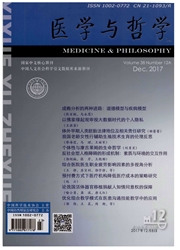

 中文摘要:
中文摘要:
目的:了解马鞍山市艾滋病高危人群中暗娼、美沙酮门诊戒毒人员、男性同性恋者对艾滋病相关问题的歧视情况及影响因素。方法:利用自制问卷、采用面对面访谈的方式对马鞍山市暗娼人群、美沙酮门诊戒毒人员和男性同性恋开展问卷调查。计量资料使用均数±标准差表示,计数资料使用率或构成比表示,采用卡方检验或Fisher确切概率法进行比较,影响因素使用Logistic回归分析。结果:本次调查有效问卷450份。对可能影响态度的变量进行多因素Logistic回归分析,因变量为是否交往时共有两个因素纳入回归模型,调查对象中的吸毒人员和男性同性恋人员、艾滋病知晓得分在6分以下者更倾向于不会与艾滋病病人/感染者交往。当因变量为是否允许艾滋病人/感染者工作时,共有两个因素纳入回归模型,调查对象中的吸毒人员和男性同性恋人员,艾滋病知晓得分在6分以下者更倾向于不允许艾滋病人/感染者工作。结论:调查对象中的吸毒人员和男性同性恋者比暗娼人员更倾向于歧视艾滋病病人/感染者。艾滋病知识得分在6分以下的调查对象对艾滋病病人/感染者的态度更消极。
 英文摘要:
英文摘要:
Objective To learn about the present situation of discrimination against people living with HIV/AIDS and its influence factors among high-risk populations, such as female sex workers(FSW), patients with methadone maintenance treatment and men who have sex with men(MSM) in Ma'anshan city. Methods FSW, MSM and patients with methadone maintenance treatment were interviewed directly by the interviewers. Measurement data were expressed as mean zk standard deviation. Qualitative data were expressed by ratio or proportion,and compared by Х^2 test or Fisher exact test. Logistic regression analysis was used for the related factors. Results A total of 450 questionnaires was valid. The suspect influence factors on attitude were analyzed by multiple logistic regression. When dependent variable was set as "Whether contact with HIV infection/AIDS patient" or "Whether allow HIV infection/AIDS patient to work", two factors were included into regression model. Drug addicts, MSM and people whose HIV/AIDS knowledge score lower than 6 tended to avoid keeping contact with HIV infection and AIDS patient, and also rejected to allow them working. Conclusions MSM and drug addicts are more prone to discriminate against HIV/AIDS than FSW. People whose HIV/AIDS knowledge score lower than 6 are more like to have a prejudice against HIV injection and AIDS patients.
 同期刊论文项目
同期刊论文项目
 同项目期刊论文
同项目期刊论文
 期刊信息
期刊信息
